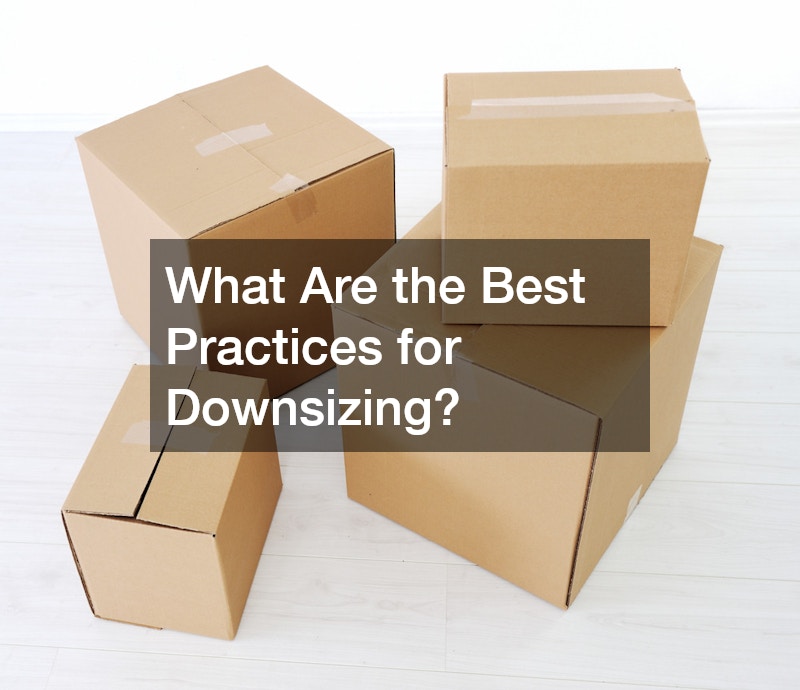As you approach retirement, planning for aging is crucial to ensure a fulfilling and healthy lifestyle. Aging is an inevitable part of life, but how you age can be influenced by the choices you make today. By “aging with a plan,” you can take proactive steps to maintain your physical well-being, create a safe living environment, manage your finances, and stay engaged in meaningful activities. This type of planning goes beyond just preparing for your financial future; it involves considering your mental, emotional, and social health as well. As you age, maintaining independence, staying connected to loved ones, and having a sense of purpose can significantly improve your quality of life. This process also requires anticipating potential challenges, such as health concerns or changes in living arrangements, and preparing for them in advance. With the right approach, aging doesn’t have to be something to fear; rather, it can be an opportunity for growth, reflection, and enjoyment. In this article, we will explore ten essential tips to help you navigate the aging process with confidence and grace. These tips will not only help you make informed decisions about your health, home, and finances but also inspire you to embrace this next chapter of life with optimism and resilience
1. How Can I Stay Active and Healthy in Retirement?
One key aspect of aging with a plan is prioritizing your physical health. Regular exercise is vital for maintaining muscle strength, flexibility, and cardiovascular health. By incorporating daily walks, yoga, or other low-impact activities into your routine, you can stay active and prevent age-related health issues.
Nutrition plays a crucial role in healthy aging. Focus on a balanced diet rich in fruits, vegetables, whole grains, and lean proteins to support your overall well-being. Monitoring your health regularly through check-ups and screenings can help you detect any potential issues early on and address them promptly.
In addition to physical health, don’t forget about your mental well-being. Practicing mindfulness, meditation, or engaging in activities that bring you joy and relaxation can help reduce stress and improve your overall quality of life.
2. What Steps Can I Take to Make My Home Safe and Comfortable?
Creating a safe and comfortable living environment is essential for aging with a plan. Consider essential home modifications such as grab bars in the bathroom, ramps for wheelchair access, and improved lighting to prevent falls and accidents. Enhance your living space by decluttering, organizing, and creating a layout that suits your needs.
Technology can also play a role in improving home safety and convenience. Smart home solutions, such as automated lights, thermostats, and security systems, can enhance your quality of life and provide peace of mind. Explore options for energy-efficient upgrades to save on utility costs and reduce your environmental impact.
Consider hiring professionals for home renovations and exterior home services, such as a lawn care company, patio building service or bathroom remodeling services, to create a more functional and aesthetically pleasing space. Consult with a kitchen contractor for upgrades that improve accessibility and usability in the heart of your home.
3. How Do I Plan Financially for Longevity?
Financial planning is a critical aspect of aging with a plan. Start by understanding your retirement income sources, including pensions, Social Security, and savings accounts. Create a budget that accounts for your fixed income and expenses, including healthcare costs and long-term care insurance.
Estate planning and legal considerations are also essential to ensure your assets are protected and distributed according to your wishes. Consult with financial advisors to explore investment options and strategies for maximizing your resources in retirement. By planning ahead financially, you can enjoy peace of mind and security in your later years.
Part of your financial planning may also include budgeting for chiropractic care, health care service, and other medical expenses that contribute to your overall well-being. Make informed decisions about your healthcare needs and insurance coverage to manage costs effectively.
4. What Activities Can I Pursue to Stay Engaged?
Staying engaged and active in retirement is essential for maintaining a sense of purpose and fulfillment. These are essential to aging with a plan. Consider volunteering in your community to give back and connect with others who share your interests. Explore hobbies and passions that bring you joy, whether it’s gardening, painting, or playing music.
Lifelong learning opportunities, such as online courses, workshops, or classes at local universities, can keep your mind sharp and expand your knowledge and skills. Join social clubs, attend gatherings, or participate in group activities to stay connected and build lasting relationships with like-minded individuals.
Traveling and experiencing new cultures can also be an enriching and rewarding way to spend your retirement years. Whether it’s a weekend getaway to a nearby destination or an international adventure, exploring new places and immersing yourself in different cultures can broaden your horizons and create lasting memories.
5. How Do I Build a Support Network?
Building a strong support network is essential for aging with a plan. Maintain relationships with family members and loved ones who provide emotional support and companionship. Stay connected with friends and neighbors through regular social interactions and activities.
Consider joining support groups or community organizations that cater to seniors and offer resources and assistance. Utilize local resources, such as senior centers, libraries, or recreational facilities, to access programs and services designed for older adults. Engage with online communities and social media platforms to connect with others and share experiences and advice.
Don’t hesitate to reach out for help when needed, whether it’s for practical assistance, emotional support, or just a friendly chat. By nurturing your relationships and fostering a sense of community, you can build a strong support network that enhances your well-being and quality of life in retirement.
6. How Can I Manage My Health Conditions Effectively?
If you have existing health conditions, managing them effectively is crucial to maintaining your overall well-being and aging with a plan. Work closely with your healthcare providers to monitor your health, adjust medications as needed, and address any concerns or symptoms promptly. Take an active role in your healthcare by staying informed about your conditions and treatment options.
Lifestyle changes, such as adopting a healthy diet, staying physically active, and managing stress, can help improve your health outcomes and quality of life. Consider exploring alternative therapies and treatments, such as chiropractic care, to address chronic pain, mobility issues, or other health concerns. By taking a holistic approach to your health, you can enhance your well-being and vitality as you age.
Remember that prevention is key when it comes to managing your health. Don’t overlook routine screenings, vaccinations, and health check-ups to detect any potential issues early and take proactive measures to address them. By prioritizing your health and well-being, you can enjoy a vibrant and fulfilling retirement.
7. What Are the Best Practices for Downsizing?
Downsizing can be a challenging yet liberating process as you transition into retirement. Start by assessing your current living situation and determining when downsizing makes sense for your lifestyle and needs. Plan your move carefully, considering factors such as location, amenities, and accessibility. These are important factors as you plan for the future.
Sorting and organizing your belongings can help streamline the downsizing process and reduce clutter in your new home. Seek assistance from professionals, such as a local roofer for roofing inspections or HVAC services for heating and cooling maintenance, to ensure your new home is in optimal condition. Choose a living space that meets your needs and accommodates any mobility or health considerations you may have.
Keep in mind the emotional aspects of downsizing, such as letting go of sentimental items or adjusting to a smaller living space. Stay positive and focus on the benefits of downsizing, such as reduced maintenance, lower costs, and a simpler lifestyle. With careful planning and preparation, downsizing can be a positive step towards a more manageable and enjoyable retirement.
8. How Can I Ensure a Relaxing and Fulfilling Retirement?
Creating a relaxing and fulfilling retirement requires setting goals, establishing routines, and prioritizing self-care. Define your retirement goals, whether it’s traveling to a new destination, learning a new skill, or spending more time with loved ones. Balance leisure activities with daily routines to maintain structure and purpose in your days.
Cultivating hobbies and interests that bring you joy and fulfillment can enrich your retirement experience. Whether it’s gardening, painting, woodworking, or volunteering, find activities that resonate with your interests and passions. Explore mindfulness and stress reduction techniques, such as meditation, deep breathing exercises, or yoga, to promote relaxation and well-being.
Look ahead to future adventures and experiences that excite and inspire you. Whether it’s planning a road trip, taking a cooking class, or embarking on a new creative project, keep your sense of curiosity and enthusiasm alive in retirement. By embracing new opportunities and challenges, you can create a retirement that is both relaxing and fulfilling.
9. What Technology Can Assist My Aging Process?
Technology can play a significant role in enhancing your aging process and improving your quality of life. Health monitoring apps and devices can help you track your vitals, medications, and fitness goals, providing valuable insights into your health and well-being. Smart home gadgets, such as voice-activated assistants, smart thermostats, or security cameras, can increase your independence and convenience.
Stay connected with social technology, such as video calls, messaging apps, and social media platforms, to maintain relationships with loved ones and stay engaged with your community. Explore online resources for learning and leisure, whether it’s taking virtual classes, reading e-books, or participating in online forums and discussions. Invest in safety and security technology, such as emergency alert systems, wearable devices, or home monitoring systems, to ensure your well-being and peace of mind.
Consult with professionals in technology and aging, such as home automation experts or IT consultants, to explore the best solutions for your needs and preferences. By embracing technology that enhances your independence, safety, and connectivity, you can navigate the aging process with confidence and ease.
10. How Do I Navigate Emotional and Mental Challenges?
Emotional and mental well-being is essential for a fulfilling and satisfying retirement. Recognize the signs of depression and anxiety, such as changes in mood, sleep, or appetite, and seek professional help if needed. Consult with mental health professionals, therapists, or counselors to address any emotional challenges and develop coping strategies. There are avenues for help if you struggle with adjusting emotionally as you grow older.
Engage in cognitive training and brain health activities, such as puzzles, games, or memory exercises, to keep your mind sharp and engaged. Practice mindfulness, meditation, or relaxation techniques to reduce stress, improve focus, and promote emotional balance. Maintain a positive outlook by focusing on gratitude, resilience, and self-care practices that nurture your mind, body, and spirit.
Building resilience, adaptability, and self-awareness can help you navigate the emotional and mental challenges that come with aging. Stay connected with supportive relationships, engage in activities that bring you joy and fulfillment, and prioritize your mental health and well-being. By taking proactive steps to care for your emotional and mental health, you can enjoy a fulfilling and enriching retirement.
In conclusion, aging with a plan is essential for maintaining a healthy, safe, and fulfilling retirement. By following the ten tips outlined in this article, you can take proactive steps to care for your home and health as you age gracefully. From staying active and engaged to managing your finances and building a support network, each aspect of aging with a plan contributes to a more satisfying and meaningful retirement.
Remember to prioritize your physical and mental well-being, create a safe and comfortable living environment, plan financially for longevity, and stay engaged in activities that bring you joy and purpose. By embracing technology, building a strong support network, and navigating emotional challenges with resilience and positivity, you can enjoy a retirement that is both relaxing and fulfilling.
Take the time to assess your needs, set goals for your retirement, and collaborate with professionals, such as chiropractic care providers, health care services, and home renovation specialists, to support your well-being and quality of life. By aging with a plan, you can approach this new phase of life with confidence, optimism, and a sense of purpose.





